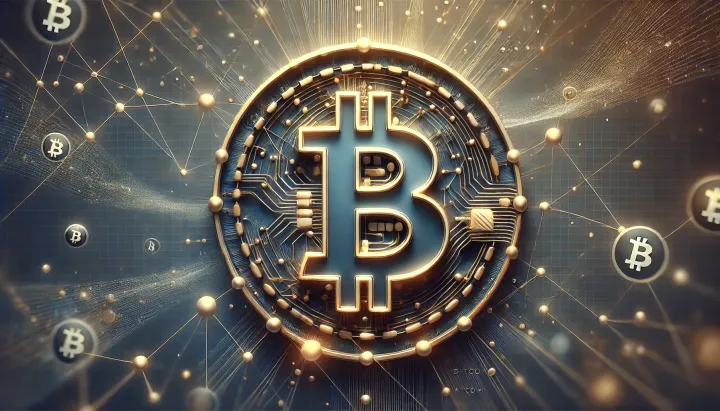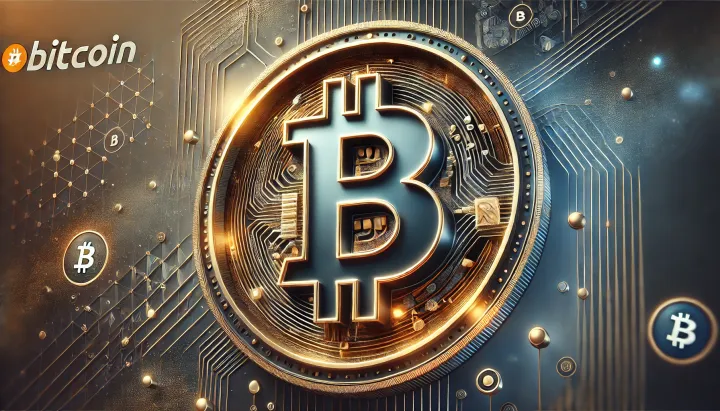Bitcoin, AI, and Decentralized Futures
The January 18, 2025 episode of the Tim Kotzman Podcast featured Michael Mo, KULR CEO, discussing Bitcoin’s pivotal role in integrating AI-driven services and fostering decentralized innovation.

- My 'briefing notes' summarize the content of podcast episodes; they do not reflect my own views.
- They contain (1) a summary of podcast content, (2) potential information gaps, and (3) some speculative views on wider implications.
- Pay attention to broadcast dates (I often summarize older episodes)
- Some episodes I summarize may be sponsored: don't trust, verify, if the information you are looking for is to be used for decision-making.
Summary
The January 18, 2025 episode of the Tim Kotzman Podcast featured Michael Mo, KULR CEO, discussing Bitcoin’s pivotal role in integrating AI-driven services and fostering decentralized innovation. The broadcast highlights technical challenges, privacy imperatives, and governance issues essential for Bitcoin’s evolution. This conversation underscores a transformative vision for digital collaboration and economic fairness.
Take-Home Messages
- Integration Catalyst: Bitcoin serves as the binding layer for AI tools, reducing friction and enabling seamless digital collaboration.
- Privacy and Trust: Open-source verification and self-custody safeguard user privacy and enhance system transparency.
- Scalability Challenge: Evolving micro payment systems and the Lightning Network are critical to Bitcoin’s growth.
- Governance Imperative: Effective consensus models are needed to manage technical upgrades and counter institutional disruptions.
- Economic Transformation: Bitcoin has the potential to redefine economic interactions, promoting fairness and decentralization.
Overview
Michael Mo outlines Bitcoin’s role as the essential glue for integrating AI agents and decentralized applications, emphasizing its capacity to reduce operational friction. He explains that Bitcoin-payable APIs can streamline business processes and enable innovative service integration. His cascading circuits analogy illustrates how combined systems yield superior outcomes.
The discussion delves into technical challenges, notably the need for scalable micro payment solutions and the evolution of the Lightning Network. Mo highlights open-source verification as a cornerstone of Bitcoin’s trust model. He stresses that maintaining an auditable system is critical for long-term reliability.
Privacy concerns feature prominently, with warnings about advanced AI capabilities and surveillance risks. Mo underscores the importance of self-custody in protecting user data and preventing institutional overreach. His insights reinforce that robust privacy measures are essential for preserving individual freedom.
The broadcast also addresses governance challenges, including coordinating network upgrades and mitigating risks from potential institutional interference. Mo discusses the tension between decentralization and user convenience. Overall, the conversation presents a forward-looking vision that balances technological innovation with economic fairness and individual empowerment.
Stakeholder Perspectives
- Entrepreneurs and Developers: They view Bitcoin’s integration with AI as an opportunity to streamline operations and innovate new business models.
- Privacy Advocates: They prioritize open-source verification and self-custody to safeguard personal data and maintain trust.
- Regulators and Policymakers: They are attentive to potential institutional disruptions and the need for clear, effective governance.
- Traditional Financial Institutions: They may see Bitcoin’s evolution as a challenge to established financial structures.
- Technology Innovators: They support continuous advancements in scalability and secure network upgrades to sustain Bitcoin’s momentum.
Implications and Future Outlook
Bitcoin’s convergence with AI and advanced payment systems has the potential to revolutionize digital collaboration and economic transactions. Addressing scalability and privacy challenges is key to harnessing these opportunities effectively. Mo suggests that coordinated technical upgrades and transparent governance can drive this transformation.
As Bitcoin becomes more mainstream, it faces dual pressures from entrenched financial institutions and emerging technological paradigms. Enhancing user experience without sacrificing decentralization will be essential. Innovations in micro payment solutions and network evolution are central to meeting these demands.
Effective governance models will be crucial for managing technical upgrades and mitigating regulatory risks. Balancing decentralization with user convenience remains a core challenge. Michael Mo’s insights point to a future where Bitcoin catalyzes economic fairness and empowers individual sovereignty.
Information Gaps
- How can Bitcoin facilitate seamless interoperability between AI-driven services? This is crucial for integrating diverse digital tools and reducing operational friction in entrepreneurial ventures.
- What measures can be implemented to ensure user privacy amid advanced AI scanning capabilities? Addressing this will safeguard individual freedoms and maintain trust in decentralized systems.
- How might regulatory actions or institutional maneuvers, such as network forks, affect Bitcoin’s decentralization? This question is key to understanding the impact of external pressures on Bitcoin’s governance and long-term stability.
- What trade-offs exist between maintaining decentralization and achieving user convenience in Bitcoin systems? Clarifying these trade-offs will inform strategies to balance technical robustness with mass market appeal.
- Which governance models are best suited for managing technical upgrades within the Bitcoin network? Identifying effective models is essential for ensuring coordinated improvements without compromising Bitcoin’s core principles.
Broader Implications for Bitcoin
Bitcoin as the Integrator for AI Innovation
Bitcoin’s role as the binding layer for AI-driven services presents an opportunity to unify diverse digital applications into a coherent ecosystem. This integration can reduce friction between platforms and streamline economic transactions, setting the stage for new technological paradigms. Broadly, Bitcoin may evolve into the foundational infrastructure that supports the next generation of AI innovations and decentralized services.
Resilient Decentralized Governance and Network Evolution
Challenges such as network forks, regulatory pressures, and institutional interventions require robust governance frameworks that can adapt over time. Developing resilient mechanisms for technical upgrades and consensus is essential to preserve Bitcoin’s decentralized ethos amid external pressures. This broader implication emphasizes the need for adaptive governance models that can sustain Bitcoin’s evolution in a dynamic global environment.
Advancing Privacy and Digital Sovereignty
The transcript highlights a strong commitment to privacy and self-custody as core pillars of Bitcoin’s trust model. Open-source verification and auditability are not only technical attributes but also represent a broader movement toward reclaiming digital autonomy. In a world increasingly dominated by surveillance and centralized data control, Bitcoin’s focus on privacy may set a new standard for individual digital sovereignty.
Catalyst for Economic Fairness and Micro Payment Innovation
Bitcoin’s potential to facilitate frictionless micro payments can disrupt traditional financial intermediaries and lead to more equitable value exchanges. By enabling low-cost, direct transactions, Bitcoin supports a fairer economic model that benefits both consumers and entrepreneurs. This broader implication positions Bitcoin as a transformative tool that could drive innovation in payment technologies and reshape global economic interactions.
Influence on Global Regulatory and Institutional Dynamics
The discussion of regulatory risks and potential institutional maneuvers highlights Bitcoin’s vulnerability to external pressures while underscoring its disruptive potential. As governments and large entities increasingly engage with decentralized systems, Bitcoin must navigate the tension between innovation and control. This broader implication calls for a proactive approach in balancing decentralized ideals with a rapidly evolving global regulatory landscape.



Comments ()